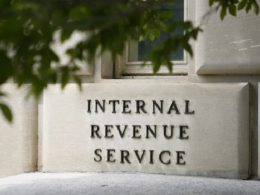Lansing, MI – As Michigan’s legislative session winds down, Governor Gretchen Whitmer is running out of time to finalize a solution to the state’s ongoing road funding crisis. With less than a month left in the lame-duck session, Whitmer is still advocating for a long-term funding plan, but it remains unclear whether she can reach an agreement with lawmakers before control of the state House shifts to Republicans in 2025.
Whitmer, who won the governor’s office in 2018 on a promise to “fix the damn roads,” has made limited progress on this front during her tenure. In 2020, she unilaterally enacted a $3.5 billion bonding plan to address road repairs, but that solution only covered state highways, leaving county and local roads largely unaddressed. While road conditions have improved modestly—68% of state roads and 53% of local roads are now rated as good or fair—many areas of the state continue to struggle with aging infrastructure.
In her most recent comments, Whitmer expressed her belief that Michigan needs a “long-term funding solution” to address its road issues, emphasizing her willingness to work with anyone serious about making progress. However, with a shift in legislative power on the horizon, the window for passing a comprehensive solution is rapidly closing. “The legislature must act now,” said Whitmer’s spokesperson, Stacey Larouche, underscoring the urgency of the situation.
For the past several years, Whitmer has pushed for increased road funding through higher taxes, most notably proposing a 45-cent gas tax hike in her first year in office. But with Republicans holding a majority in the state legislature, that proposal was dead on arrival. Since then, Whitmer’s focus has shifted to issuing bonds for short-term fixes, though her efforts to negotiate a broader funding solution have stalled.
The issue has become even more pressing as rising construction costs and inflation have slowed the pace of repairs. The cost of paving a single lane-mile of road has surged by nearly 40% since 2019, and bridge repairs have seen a similar spike in costs. Despite an increase in state spending for road repairs, the overall backlog in infrastructure maintenance persists, particularly for locally maintained roads.
Republican leaders, who will soon take control of the state House, have been more proactive in offering solutions. Speaker-Elect Matt Hall has proposed a plan to reallocate existing state funds to boost road repairs without raising new taxes. Under his plan, nearly all revenue from the Corporate Income Tax would be redirected to the state’s road fund, though this would require cutting back on Whitmer’s signature economic development program. Hall has also suggested exempting fuel purchases from the state sales tax, while increasing fuel taxes by an equivalent amount to ensure all taxes paid at the pump would go directly to road repairs.
While Hall’s proposal has gained traction among Republicans, it has drawn sharp criticism from Democrats, particularly those in the education sector. The plan would redirect revenue currently allocated to public schools, which receive a significant portion of the sales tax generated by fuel purchases. Education advocates, including Jen Smith of the Michigan Association of School Boards, have raised concerns that the GOP’s plan lacks a clear mechanism to replace the $650 million in school funding that would be lost under this proposal.
In response, Hall and other Republicans have insisted that schools would not lose funding under their plan, though they have not provided specific details on how the funding gap would be closed. The uncertainty surrounding the impact on schools has left some education advocates wary of any proposal that involves re-shuffling state revenue.
While both Whitmer and outgoing House Speaker Joe Tate have emphasized the importance of road funding, neither has committed to advancing specific legislation in the final weeks of the session. Tate, who will soon cede control of the House to Republicans, has expressed a willingness to keep discussions on the table but has not indicated whether road funding will be a top priority for Democrats before the session concludes.
As the end of the year draws near, the possibility of a resolution remains uncertain. With Republicans set to control the House starting in January, any significant road funding legislation would likely require bipartisan cooperation, a challenge that may prove difficult in the coming months.
For local governments and road agencies, the funding shortfall is already beginning to take its toll. Denise Donohue, CEO of the Michigan County Roads Association, has warned that without increased investment, more county roads could slip into poor condition. “We’ve seen significant gains in the past few years, but inflation and reduced gas consumption are taking their toll,” Donohue said. “If we don’t address this soon, we could see more roads falling apart.”
While some road groups have supported alternative ideas such as toll roads or mileage-based user fees, none of these proposals have gained significant traction among state lawmakers. With no clear path forward, the future of Michigan’s road funding remains in limbo as the legislature enters its final weeks of the year.
As Whitmer prepares for the conclusion of her term, the road funding crisis is likely to be a defining issue as her administration enters its final stretch. With a new Republican majority soon to take control of the House, finding a lasting solution will require more than just temporary fixes—it will require a long-term, bipartisan compromise.












